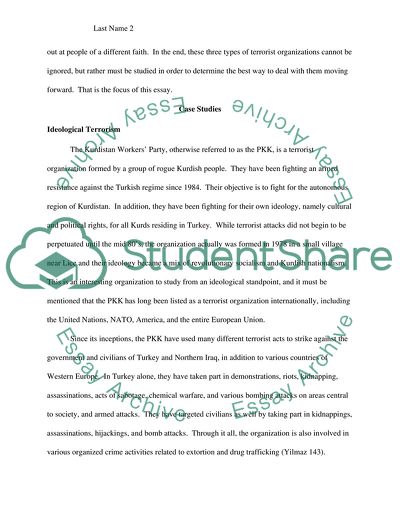Cite this document
(Ideological, Nationalist, and Religious Terrorism Term Paper Example | Topics and Well Written Essays - 2250 words, n.d.)
Ideological, Nationalist, and Religious Terrorism Term Paper Example | Topics and Well Written Essays - 2250 words. https://studentshare.org/military/1796794-final-paper
Ideological, Nationalist, and Religious Terrorism Term Paper Example | Topics and Well Written Essays - 2250 words. https://studentshare.org/military/1796794-final-paper
(Ideological, Nationalist, and Religious Terrorism Term Paper Example | Topics and Well Written Essays - 2250 Words)
Ideological, Nationalist, and Religious Terrorism Term Paper Example | Topics and Well Written Essays - 2250 Words. https://studentshare.org/military/1796794-final-paper.
Ideological, Nationalist, and Religious Terrorism Term Paper Example | Topics and Well Written Essays - 2250 Words. https://studentshare.org/military/1796794-final-paper.
“Ideological, Nationalist, and Religious Terrorism Term Paper Example | Topics and Well Written Essays - 2250 Words”. https://studentshare.org/military/1796794-final-paper.


